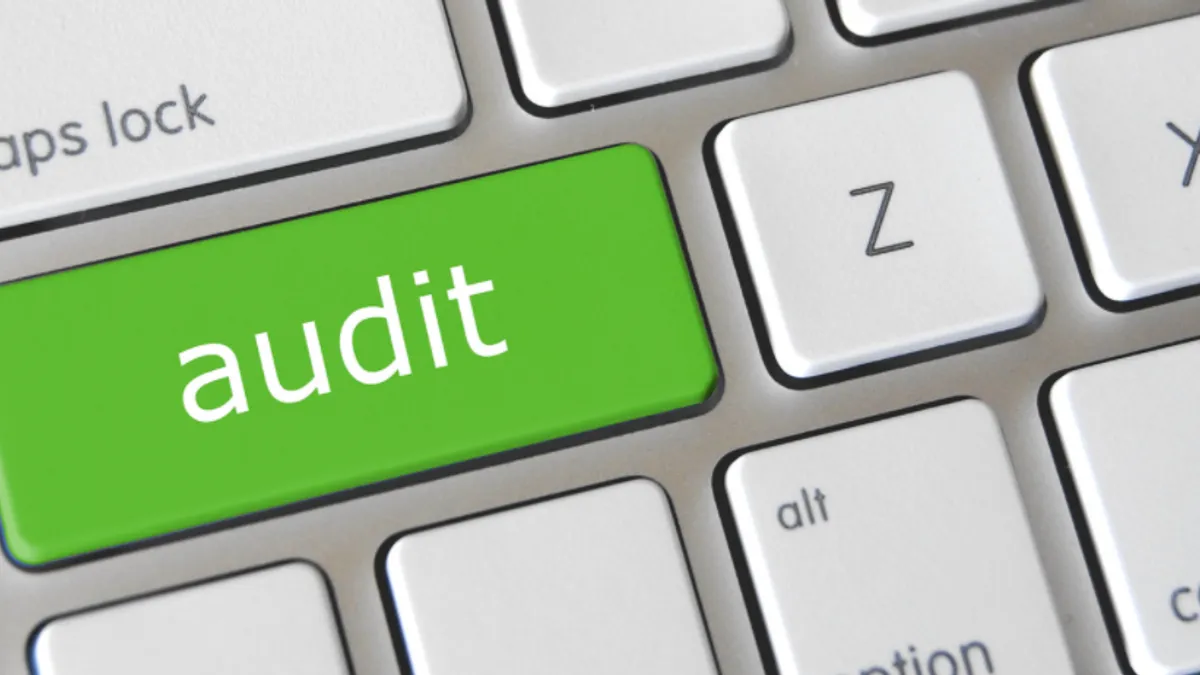Dive Brief:
- Deficiencies persist to a high degree in the work of small audit firms, the acting director of the Public Company Accounting Oversight Board (PCAOB) said, referring to the audit watchdog’s 2020 inspection of firms that annually audit 100 or fewer publicly traded companies.
- “While we saw some improvements at the smaller firms that we inspect every three years, deficiencies continue to remain high for smaller firms,” PCAOB Acting Director Duane DesParte said Tuesday during a webinar hosted by Financial Executives International.
- “On a positive basis, we noted fewer findings in the majority of the larger annually inspected firms,” DesParte said. The PCAOB annually reviews the performance of auditors that provide audit opinions for 100 or more public companies, and every three years for those that audit fewer than 100 companies.
Dive Insight:
The PCAOB, in a report last month, flagged several deficiencies in audits of U.S. companies during 2020, especially in internal control over financial reporting, reporting on revenue, accounting estimates, inventory tracking and auditor independence.
“We observed frequent deficiencies related to the design and performance of audit procedures to identify and address assessed risks of material misstatement related to revenue,” the board said, referring to inspections of 510 audits conducted by 114 U.S. audit firms and 107 audits by 39 audit firms outside the U.S.
Some auditors did not confirm that companies provided services to a customer before they recognized the revenue for the services, the PCAOB said. Also, some auditors, when “performing tests of details or substantive analytical procedures, did not test, or did not identify and test any controls over, the accuracy and completeness of data or reports produced by the public company.”
DesParte elaborated on the inspections but did not comment further about the performance of smaller auditors.
The PCAOB carried out its inspections as usual, while expanding its focus to ensure audit firms maintain their quality control systems during the pandemic, he said.
“We have continually emphasized to the firms that they need to fully comply with standards even in this challenging environment,” DesParte said. “In this environment, heightened objectivity and professional skepticism is especially important.”
Deficiencies persist in accounting estimates, auditing revenue and the auditing of internal controls, he said. “We found a fair number of instances where auditors were not always appropriately testing revenue recognition, not always appropriately evaluating performance obligations.”
The pandemic did not impair PCAOB inspections, DesParte said.
“We did do our inspections remotely in 2020 for the most part, but I do want to emphasize that we did not in any way scale back the scope or rigor of our inspections,” he said.
“I just want to clarify that,” he added, noting “some speculation in the press” suggesting otherwise.
Erica Williams will become the new PCAOB chair, replacing DesParte, the Securities and Exchange Commission (SEC) announced Monday. DesParte will continue to serve as acting chair until Williams is sworn in, and will remain on the board afterward.
Williams has been a deputy chief of staff to three former SEC chairs and assistant chief litigation counsel for the SEC’s enforcement arm, giving her extensive experience in the federal government’s oversight of public companies.
The PCAOB will also include former SEC Commissioner Kara Stein, former Treasury Deputy Assistant Secretary Christina Ho and Anthony Thompson, executive director and chief administrative officer of the Commodity Futures Trading Commission.















